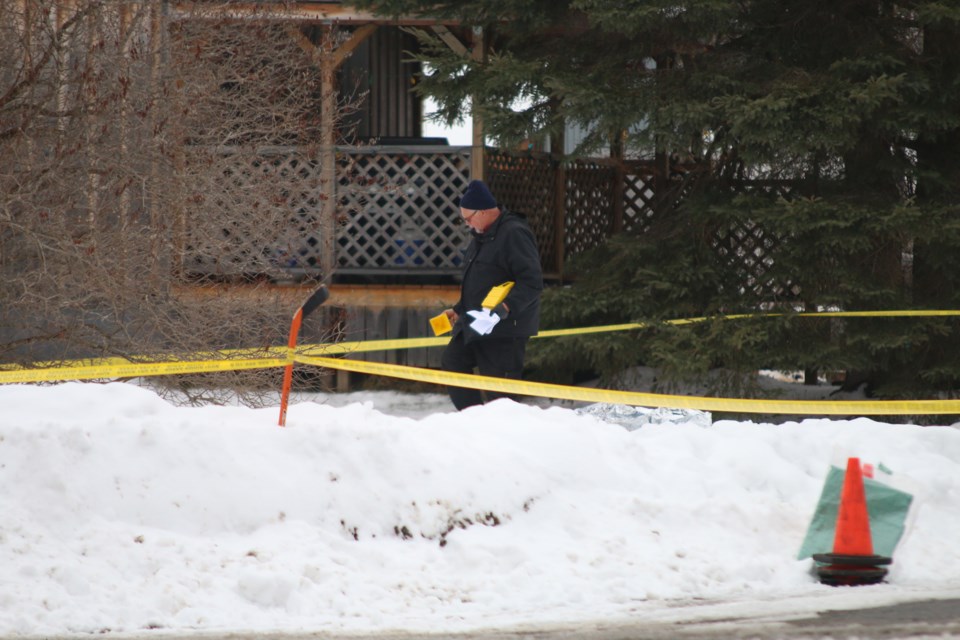NIPIGON, Ont. – The jury in the coroner’s inquest examining the death of 45-year-old Daniel Legarde agreed with the joint determination reached by counsel on behalf of all involved parties that his manner of death was homicide.
Legarde died from a gunshot wound to the abdomen following an interaction with the Ontario Provincial Police in Nipigon on the night of Nov. 26, 2016.
The coroner’s inquest concluded on Friday afternoon with the jury returning with a verdict after beginning deliberations late Thursday. The jury also handed down 18 recommendations calling for more police training, particularly relating to de-escalation.
Evidence presented throughout the inquest revealed officers with the OPP Nipigon detachment were called to a Park Road residence Nov. 26, 2016 for reports of an unwanted person.
When officers arrived, Legarde exited the residence and was armed with a knife. Officers first used a taser but it had no effect. Legarde exited the residence a second time and approached officers with the knife raised above his head. It was at that time one of the officers discharged his firearm at Legarde, hitting him in the abdomen.
Legarde was transported to the Nipigon Memorial Hospital, where he died as a result of his injuries.
The jury agreed with the joint determination by all parties with standing in the inquest that Legarde’s manner of death was homicide. The finding of homicide as a manner of death is not criminal in an inquest.
The officers involved were found by the Special Investigations Unit to have acted lawfully within the course of their duties and no charges were laid.
A set of joint recommendations were also reached by the parties and presented to the jury on Thursday, with the jury agreeing with the submissions.
The majority of the recommendations were directed at the OPP and the Ontario Police College and speak to enhancing and expanding training, particularly in relation to intimate partner violence, Indigenous relations, and de-escalation.
Recommendations directed to the OPP include developing Indigenous-specific training programs for officers and better relationship-building with Indigenous communities.
Another stated more resources should be provided to the Indigenous Awareness Training Unit to increase the number of courses available to officers.
It is also recommended that more resources be made available to increase the number of officers working at the Nipigon OPP detachment and similar detachments, and that more officers be dedicated to each shift.
Recommendations directed at the Ontario Police College and the OPP stressed training relating to intimate partner violence and de-escalation.
The jury recommended refresher courses relating to intimate partner violence, particularly considerations for keeping involved parties separate at the scene, be part of annual block training.
Training should also emphasize creating time and distance when dealing with an individual with a weapon as a de-escalation technique.
Other de-escalation techniques emphasized in the recommendations include more training for officers in dealing with individuals in crisis, the use of verbal and non-verbal de-escalation techniques during annual block training, and the proper application of the trespass to property act.
It is also recommended the incident involving Legarde be used as a scenario in police training while also being mindful to not retraumatize the involved officers.
Other recommendations were directed at the Ministry of Children, Community, and Social Services, and included improving communication with involved parties.
The Office of the Chief Coroner was called upon to set targets for the completion of inquests and implement strategies to meet those targets in an effort to reduce wait times in the inquest process.
The Ministry of the Solicitor General is also recommended to implement a process to review the Ontario Police Training Aid for effectiveness and make it a living document open to review and changes.
A recommendation submitted by the Legarde family that police officers in Ontario be required to have a post-secondary education was not included in the jury’s recommendations.
